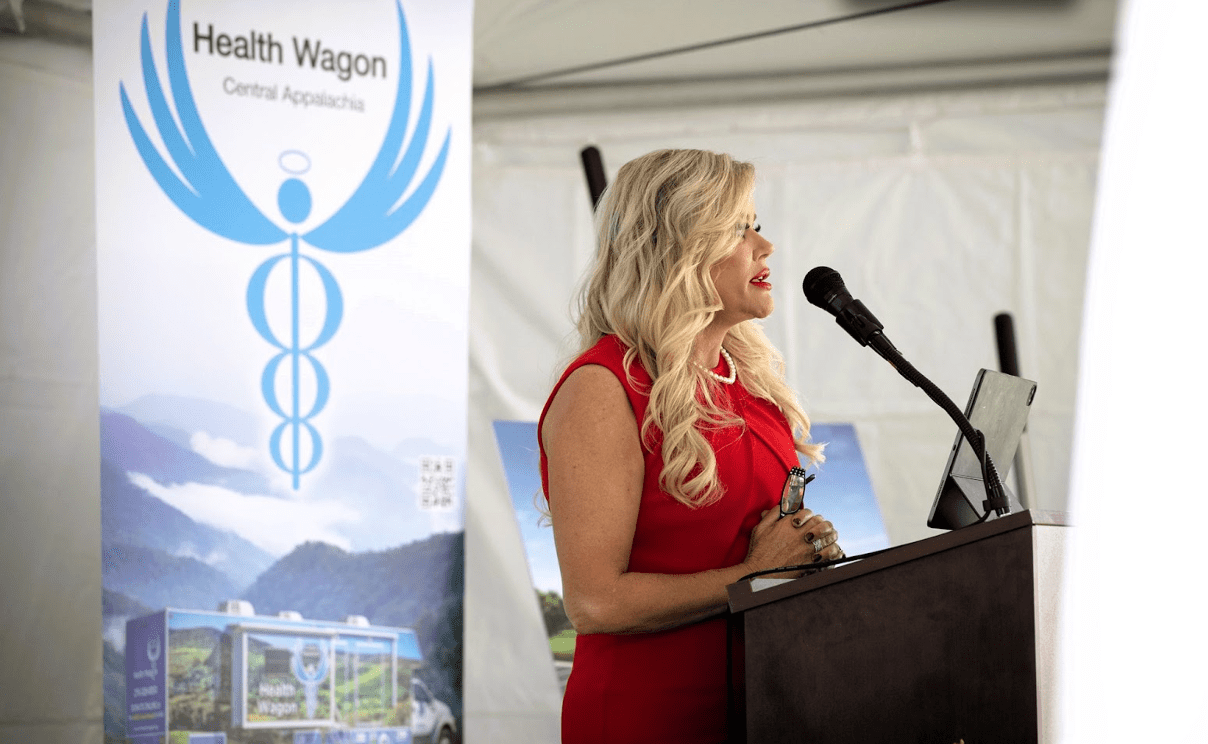Health
Obtain Extensive Digestive Care Services from A Renowned Gastroenterologist in Texas

Although most individuals do not like to speak about it, gastroenterological problems are quite frequent. Common symptoms for gastroenterological issues differ in seriousness, from mild to severe, including constipation, diarrhea, heartburn, abdominal pain, nausea, and vomiting. If you are experiencing such symptoms regularly or they are causing you discomfort, your body may be attempting to notify you that you have a digestive problem. Do not suffer in silence – it would help if you consult Bharat Pothuri, MD of GastroDoxs PLLC. As the best Cypress gastroenterologist, Dr. Pothuri has devoted his profession to assisting patients with various gastrointestinal issues inside and outside the Greater Houston region. Arrange an appointment today through mobile or book online to find out more.
Meet Bharat Pothuri, MD, FACG
Dr. Pothuri received his medical education at KIMS Medical School before completing his residency and fellowship at the University of Massachusetts and Albert Einstein College of Medicine. Dr. Pothuri, a board-certified gastroenterologist and hepatologist practitioner, has committed to ongoing education to broaden his clinical knowledge and abilities.
In 2016, Dr. Pothuri was elected a Fellow of the American College of Gastroenterology. This esteemed status is only given to gastroenterologists who have performed more research in the discipline and come highly recommended by their peers.
Dr. Pothuri’s GastroDoxs staff consists of experts who spend ample time to make every patient feel more at ease from the time they walk in the door until they depart. This degree of dedication to care delivery distinguishes GastroDoxs, which is why so many people across North Houston and the more extensive Houston area recommend Dr. Pothuri to their family and friends.
Dr. Pothuri enjoys watching his treasured team, the Pittsburgh Steelers, and sampling the different great dishes Houston has to provide, all while maintaining a healthy lifestyle in his spare time. Dr. Pothuri and his wife, Dr. Vanitha Pothuri, both have philanthropic inclinations and serve on the committees of several non-profit groups at any given point in time. Rahul, Dr. Pothuri’s son, is the love of his life.
How Could You Benefit From Dr. Pothuri’s Care?
At GastroDoxs PLLC, Dr. Pothuri addresses a wide range of gastroenterological conditions, including, but are not limited to:
- Irritable bowel syndrome
- Abdominal pain
- Diarrhea
- Constipation
- Rectal bleeding
- Acid reflux
- Dysphagia
- Inflammatory bowel disease (IBD)
- Gastroesophageal reflux disease (GERD)
- Colon and rectal cancer
To ensure a safe and precise diagnosis, Dr. Pothuri utilizes potent diagnostic procedures such as upper endoscopy to peer into a patient’s upper gastrointestinal tract.
After determining your underlying concern, he develops a customized care plan for you. Treatments for gastroenterological concerns might include dietary changes, hydration, medication, or even surgery.
Reach out to Dr. Pothuri for any queries about insurance coverage. Currently, the practice accepts most major insurance plans.
You need not struggle with gastroenterological concerns, while Dr. Pothuri, a protracted Houston inhabitant, developed GastroDoxs to offer complete digestive care services for the community he loves. Get started right away by calling the office or use the online booking service to set up an initial consultation.
Health
Dr. Teresa Tyson, DNP, Discusses The Hidden Healthcare Crisis in Remote Regions

Image source: Dr. Teresa Tyson, DNP, and Health Wagon
Access to healthcare remains a challenge for many individuals living in rural and remote areas, where medical facilities are scarce or difficult to reach. Many residents endure long travel times for even basic medical services, leading to delayed diagnoses and worsening health conditions. The lack of healthcare professionals further compounds the issue, leaving communities with inconsistent or inadequate care.
While technology and government initiatives have made strides in addressing these disparities, Dr. Teresa Tyson, DNP, notes how there are many obstacles still hindering widespread improvement. Bridging the healthcare gap requires a combination of innovative solutions, infrastructure development, and policy changes to ensure that medical services reach those who need them most.
Limited Access to Medical Care
Many remote regions struggle with a severe lack of healthcare facilities, leaving residents with minimal options for medical treatment. Hospitals and clinics are often located hours away, making even routine checkups a logistical challenge.
A shortage of medical professionals further worsens the situation, as many doctors and nurses prefer to work in urban areas with better resources and career opportunities. As a result, rural communities often rely on understaffed clinics or visiting healthcare workers who may not be available consistently. This leads to delayed diagnoses and inadequate treatment for chronic conditions. Many rural clinics operate with limited medical supplies, making it difficult to provide comprehensive care even when healthcare professionals are available.
In some cases, patients must travel long distances just to receive basic care, often at great personal and financial costs. The burden of transportation, time off work, and the uncertainty of available treatment discourage many from seeking medical attention until their conditions become severe.
Health Risks and Consequences
Delays in medical care often mean that conditions that could have been treated early turn into serious health complications. Many individuals in remote areas develop chronic illnesses that go undiagnosed for years simply because healthcare services are too far away or difficult to access. Diseases that are manageable with regular monitoring, such as diabetes or hypertension, frequently spiral out of control due to the lack of consistent medical supervision.
Beyond physical health, the absence of adequate healthcare also takes a toll on mental well-being. Isolation and limited access to mental health professionals leave many struggling with anxiety, depression, and other psychological conditions without proper support. In small, tight-knit communities, stigma around mental health can make it even harder for individuals to seek help, further exacerbating the crisis.
Preventable diseases continue to spread in these areas due to the lack of vaccinations, screenings, and early interventions. Without proper healthcare infrastructure, outbreaks of common illnesses can have devastating effects, particularly on children and the elderly. The combination of poor access, financial barriers, and limited awareness creates a cycle where minor health concerns escalate into life-threatening conditions.
Challenges in Expanding Healthcare Services
Building and maintaining healthcare infrastructure in remote regions comes with considerable hurdles. Poor road conditions and unreliable transportation make it difficult for medical professionals to reach patients, and in some cases, ambulances are unavailable, forcing residents to rely on personal vehicles or community efforts to transport those in need. In areas with extreme weather conditions, seasonal challenges further complicate healthcare delivery, cutting off entire communities during certain times of the year. These conditions make it nearly impossible for emergency medical teams to provide timely assistance in critical situations.
Funding remains a major obstacle, as rural healthcare facilities often struggle with limited financial resources. Many small clinics operate on tight budgets, lacking essential medical equipment and supplies. Without sufficient investments, these facilities cannot expand their services, making it harder to attract and retain qualified healthcare workers. As a result, many professionals opt to work in urban settings where they have access to better salaries, career advancement, and modern medical technology.
Role of Technology in Bridging the Gap
Advancements in technology are offering new ways to connect patients in remote areas with medical professionals. Telemedicine has made it possible for individuals to consult doctors without having to travel long distances, reducing delays in diagnoses and treatment. Virtual consultations, remote monitoring, and mobile health apps allow patients to receive medical advice without needing to visit overcrowded or distant healthcare facilities. In addition to telemedicine, artificial intelligence is being used to assist in diagnosing conditions remotely, helping bridge the gap in specialist care.
Despite its potential, implementing technology-driven healthcare solutions in rural regions is not without obstacles. Many areas lack reliable internet access or the necessary digital literacy to make full use of telehealth services. Even when technology is available, the cost of devices and connectivity can create another barrier, preventing low-income households from benefiting fully. Addressing these issues requires a combination of infrastructure development, education, and financial support to ensure that technology can be effectively integrated into rural healthcare systems.
Efforts to Improve Rural Healthcare
Governments and nonprofit organizations are actively working to address the healthcare challenges faced by remote communities. Investment in medical outreach programs, mobile clinics, and training initiatives for local healthcare workers has helped bring essential services to those who need them most. Some regions have introduced incentive programs to encourage doctors and nurses to work in underserved areas, offering student loan forgiveness, housing assistance, or higher salaries.
Community-led initiatives also play a crucial role in improving healthcare access. Local volunteers and advocacy groups often step in to provide educational workshops, vaccination drives, and wellness programs tailored to the specific needs of their communities. These grassroots efforts help bridge gaps where formal healthcare systems fall short, ensuring that residents receive at least some level of medical support.
Future Prospects for Remote Healthcare
Innovations in medical technology, policy changes, and raising awareness are shaping the future of rural healthcare. The expansion of telehealth services, combined with improved infrastructure, has the potential to make healthcare more accessible and efficient. Continued investment in mobile medical units and community-based programs could ensure that even the most isolated areas receive the care they need. Research into low-cost, portable medical devices is also opening new doors for remote diagnostics and treatment.
Sustained progress will depend on collaboration between governments, healthcare providers, and local communities. Long-term solutions require more than temporary programs; they demand systemic changes that prioritize equitable medical access. If these efforts continue to grow, rural healthcare systems may finally move toward lasting improvements that benefit future generations.
-

 Tech4 years ago
Tech4 years agoEffuel Reviews (2021) – Effuel ECO OBD2 Saves Fuel, and Reduce Gas Cost? Effuel Customer Reviews
-

 Tech6 years ago
Tech6 years agoBosch Power Tools India Launches ‘Cordless Matlab Bosch’ Campaign to Demonstrate the Power of Cordless
-

 Lifestyle6 years ago
Lifestyle6 years agoCatholic Cases App brings Church’s Moral Teachings to Androids and iPhones
-

 Lifestyle4 years ago
Lifestyle4 years agoEast Side Hype x Billionaire Boys Club. Hottest New Streetwear Releases in Utah.
-

 Tech6 years ago
Tech6 years agoCloud Buyers & Investors to Profit in the Future
-

 Lifestyle5 years ago
Lifestyle5 years agoThe Midas of Cosmetic Dermatology: Dr. Simon Ourian
-

 Health6 years ago
Health6 years agoCBDistillery Review: Is it a scam?
-

 Entertainment6 years ago
Entertainment6 years agoAvengers Endgame now Available on 123Movies for Download & Streaming for Free
